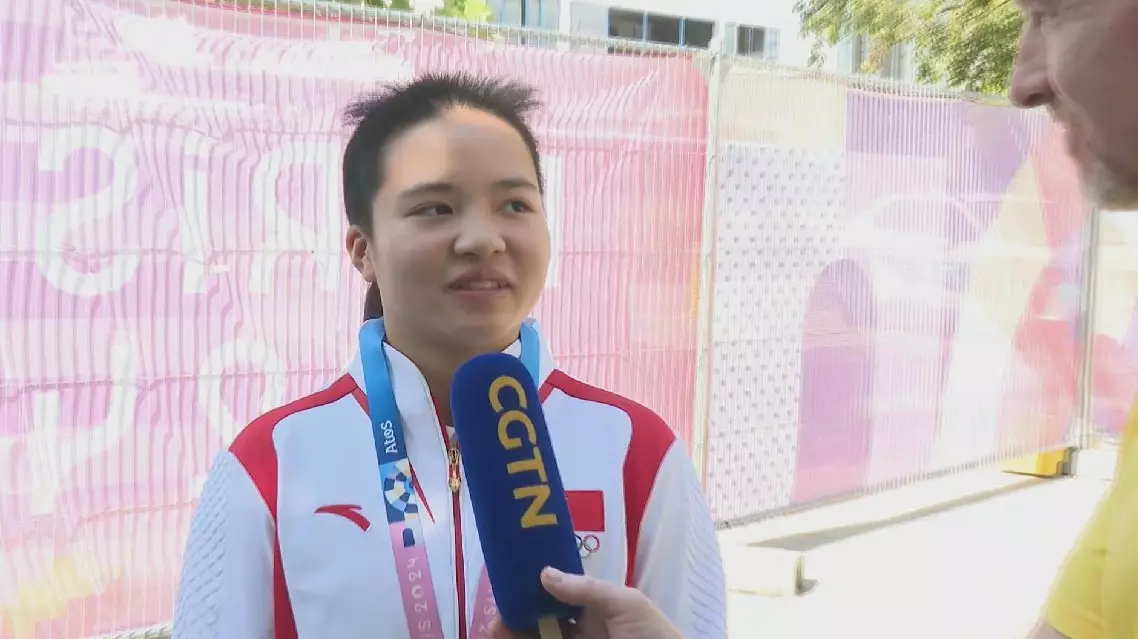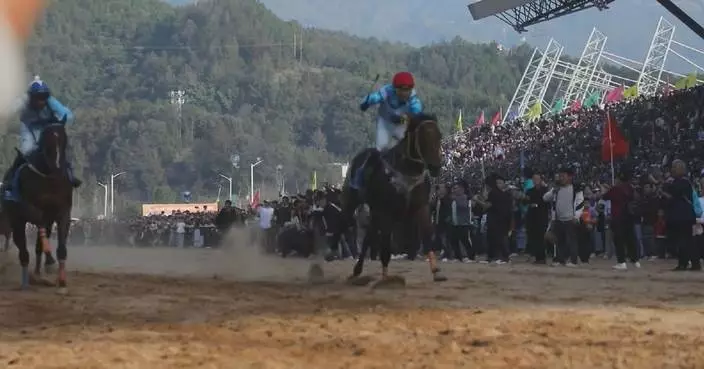Chinese breaker Liu Qingyi said she feels proud of her performance and encouraged others to dream big after bagging bronze at the Paris Olympics as breaking made its much-anticipated debut at the world's premier multisport competition for the first time.
The 18-year-old Liu, also known as "B-Girl 671", a moniker she choose due to her full name sounding like the pronunciation of those numbers in Chinese, was one of the stand-out stars as the sport featured on the Olympic stage for the first time.
Liu showed strong potential throughout the competition but lost out to Dominika Banevic of Lithuania in the semi-finals, denying her a shot at the Olympic title.
"I felt proud, but it's a little bit pity. Because I think for the semi-final, maybe the first round, [I was] a little bit rushed. I did my best, I already do all [that I can], yeah, but the result I can't control. Yes, I did my best," she said in an interview with the China Media Group (CMG).
However, after this painful loss, Liu picked herself up quickly for the bronze medal contest, where her opponent was India Sardjoe of the Netherlands, a rival whom she has battled against before. But under immense pressure, Liu showed great determination as she performed with a new set of moves to seal the victory.
"Because after the semi-final, I know I can't go to the final. So the next battle is the most important. I should win. I have a feeling [that] I must win. And for India, [at the] Red Bull BC One, I lost to her. So I must win back. I want to push myself, I must win this battle," she said.
Reflecting on her experience in Paris, Liu said participating in the Olympics has helped her grow as an athlete, while also showcasing the sport to new audiences worldwide.
"First of all, I think for breaking [to appear] in the Olympics is a surprise, So I'm really happy to compete in this competition. Also yesterday, I think my performance, I did great. Step by step. It's only a process of my life. The Olympics is a milestone in breaking and also for myself. So I'm happy I can compete in so many high-quality competitions," she said.
After having trained for five years to reach the Olympic stage, Liu highlighted the growing popularity of breakdancing in China thanks to its inclusion in the Games, and sent out a message to young breakdancers who are looking to follow in her footsteps.
"Trust yourself, trust the process. You should be yourself first. Then you can overcome so many problems," she said, adding: "You should trust yourself and do as you want, [follow] your dream."

Chinese breaking star encourages others to dream big after bagging Olympic bronze

















































